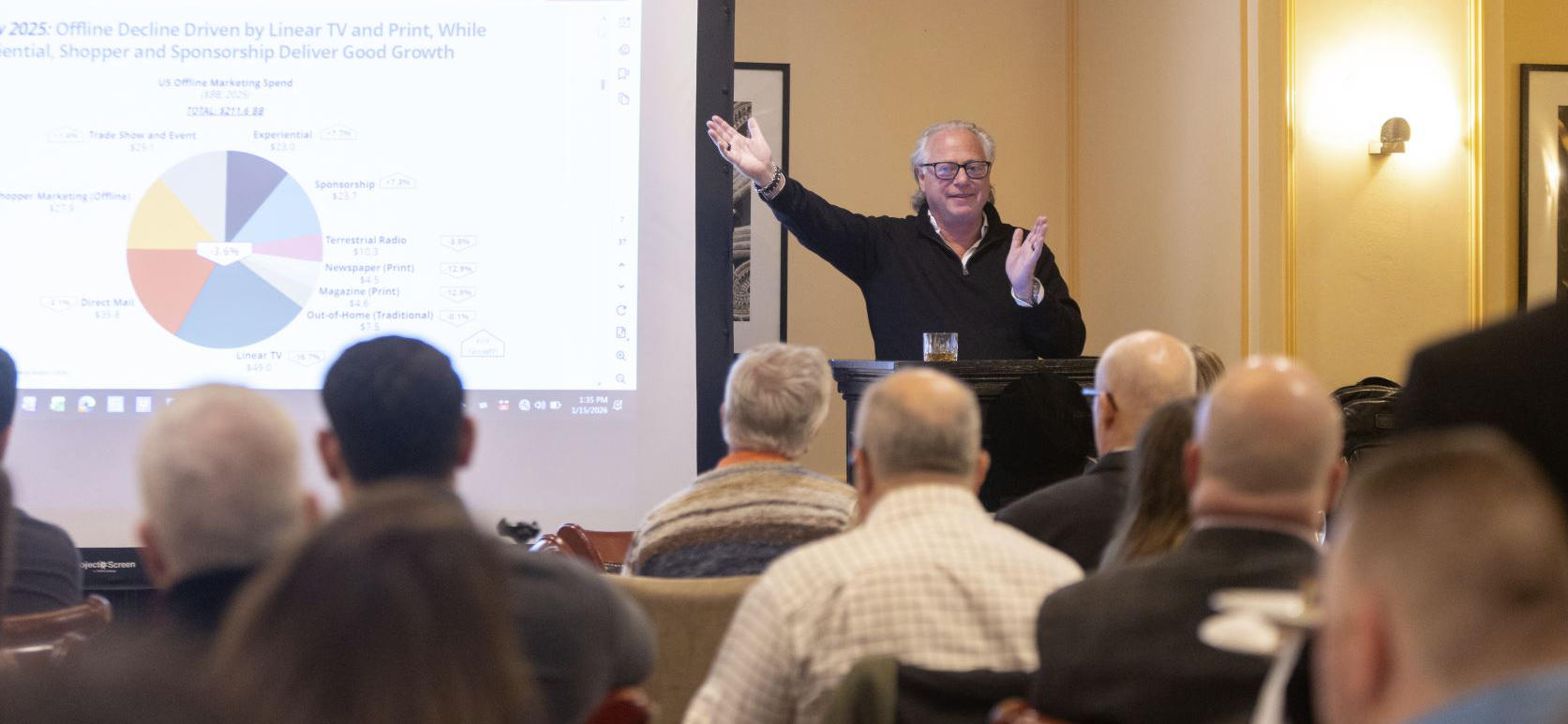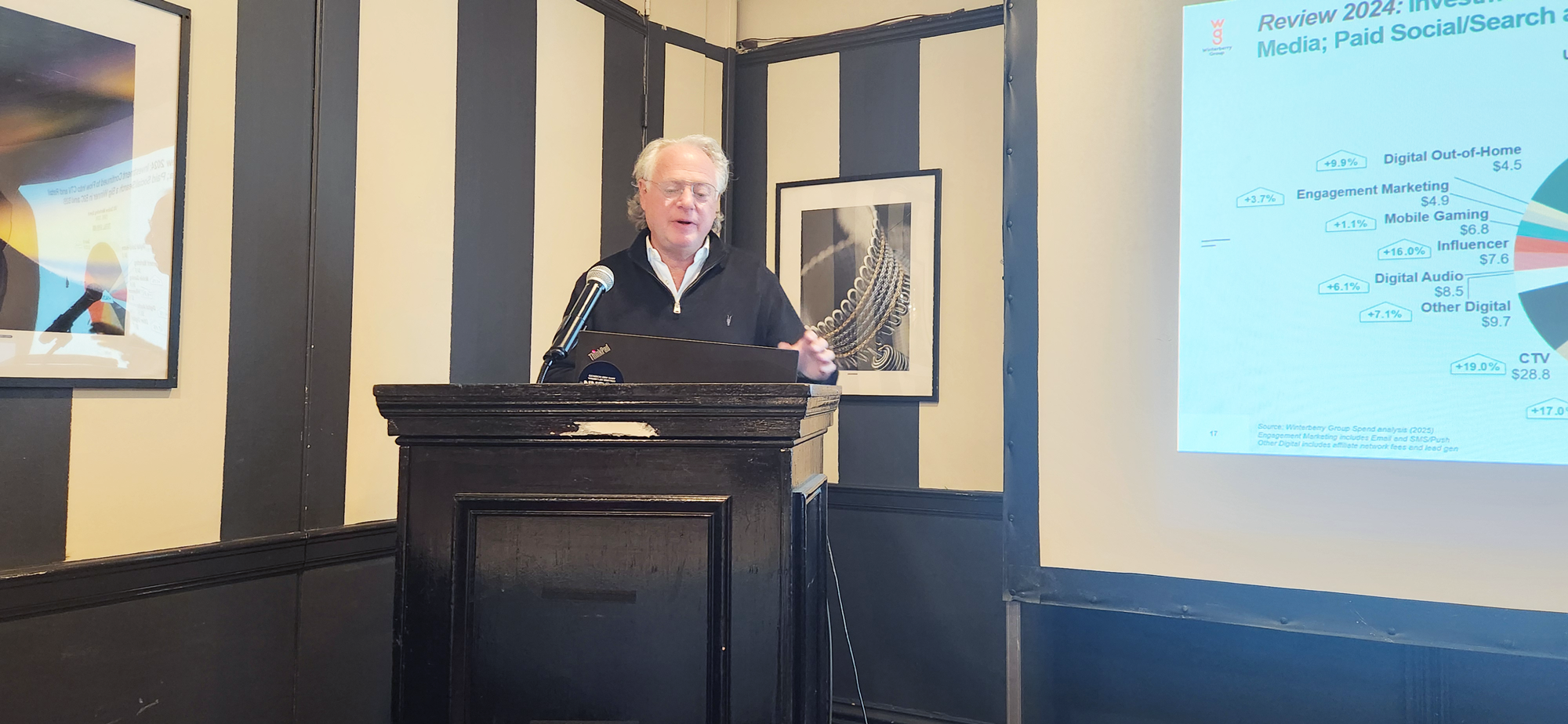Consumer marketing gets all the hype when it comes to innovation and change. Yet business-to-business (B2B) marketing in the United States and Europe is experiencing significant transformation as well, according to new research from Winterberry Group.
Multiple factors are in play — each leaving their own mark in how we go to business today, says the white paper, “Outlook for B2B Marketing: A Market in Transformation (June 2023).”
Consider these influences:
- the emergence of digital natives among buying and selling decision makers
- the post-pandemic “consumerization” of business marketing
- increased efficiencies in tech investments that are foundational to marketing platforms
- the nascent adoption of artificial intelligence
The paper is the result of surveys conducted with 200 marketers and more than two dozen agency and analytics professionals immersed in B2B markets across North America and Europe. The paper was preceded by Winterberry Group statistical research, released in January, which shows B2B marketing spending may reach an estimated $53.7 billion this year, for the first time eclipsing pre-pandemic spending of $50.4 billion as measured in 2019. (These data were announced immediately following Winterberry Group’s Annual Outlook Luncheon with the Marketing Club of New York.)
“This full recovery of B2B spending is not a ‘back to usual’ moment,” said Bruce Biegel, senior managing partner, Winterberry Group, one of the paper’s co-authors, in a recent press announcement. “In fact, the COVID-19 pandemic and its aftermath have had a transformative effect on the marketplace, leading businesses to make changes in how they organize, strategize and execute to align sales and marketing, and to drive results.”
According to the white paper and Biegel, among key drivers of transformation are:
- Consumerization: B2B buyers are taking their consumer experience to work and “consumerizing B2B” in terms of customer care, user experience, social media, reviews and brand presence across channels, among other influences.
- Buying journey: B2B buyers are beginning the buying journey online and more often ending in online environments, yet the journey is anything but linear as the journey moves between the online and offline interactions. Marketers need to map buying journeys across multiple interaction points and focus on measuring buyer behavior at each point.
- Digital natives influence: Digital natives have elevated into decision making roles — leading to systemic changes in buying behaviors including how they collaborate within the organization, with peers and leverage social media as part of the decision process.

- AI and content: “Content at scale and speed” will be enabled by conversational AI and machine learning to enable versioning and message optimization for efficiency; creative ideas, generated by humans and brand trust will drive marketing effectiveness.
- Privacy affects addressability: While privacy and data regulations will limit addressability of one-to-one marketing messages, the marketplace is rapidly adapting with investment in data infrastructure that enable the use of metadata, intent, context and improved analytics in a quest to drive performance.
- Tech stack focus: Tech stack investments will seek to improve utilization by both sales and marketing teams by focusing on organization- and user-defined objectives of what should be done versus what can be done. Thus, tech investments need to be assessed against use cases and objectives, rather than features and capabilities.
- Offline spend still larger: Digital marketing spend will grow in total share of budget, especially in search and paid social. But offline spend, led by experiential, will maintain the majority of spend in B2B markets. Invest across the funnel to build brand over time and drive performance.
- Silo-busting as a career: The combined impact of the technology, data and omnichannel integration is going to have a permanent transformation of the organization, initially with an increase of B2C skills crossing over for digital and brand marketing and over time the transformation of the roles within marketing to a more fluid, strategic and omnichannel skill set rather than the silos and “executional” based staffing present today.
The white paper has a corporate sponsor of Anteriad, a global B2B marketing solution provider and an association sponsor in Association of National Advertisers (ANA).
“In order to reach today’s B2B buyer, marketers need to focus on addressing the data concerns that the Winterberry Group has raised in the research,” said Rob Sanchez, CEO of Anteriad. “Centralizing marketing data, using their tech stack investments to consolidate insights from digital channels, and analytics to map the new customer journey and to measure attribution, are all actions that should be on every B2B CMOs’ shortlist.”

Results of the full study, with an executive summary, are available for download from Winterberry Group, via a free registration: https://www.winterberrygroup.com/
Tags: Marketing Club of New York, MCNY, B2B Marketing, Business-to-Business Marketing, Research, Winterberry Group, Bruce Biegel, Anteriad, Rob Sanchez, Digital Natives, Artificial Intelligence








